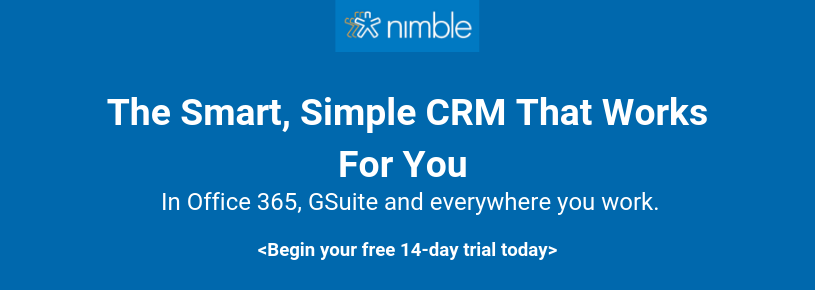Link building is synonymous with content marketing — and for good reason.
The honest way of building quality links is to have something on your website worth linking to and then telling people about it.
That “something” is usually a piece of high-quality, original, engaging, and informative content.
Another popular alternative is guest posting. Unlike building link-worthy assets, guest posting demands consistent and continuous efforts which may sometimes take months to show measurable benefits.
While the importance of content in search engine optimization (not just link building) cannot be overstated, the truth is that producing link-worthy content can be a daunting task.
This is especially true if your business’ core competency is not closely related to producing content like it is for marketing agencies.
In fact, if you haven’t already been producing content, developing a link-worthy piece, be it a video or a blog post or an infographic, will require you to enlist the list of experts.
Once again, there is a deterrent here is that talented content producers charge premium prices.
In other words, as important as content is to success on the search engines, producing great content is either expensive or too challenging.
This is perhaps one of the reasons why, despite the awareness about the importance of quality content, many businesses, especially those with bootstrapped budgets, fail to produce link-worthy content and in turn, quality backlinks.
Thankfully, it is possible to procure high-quality backlinks without creating content.
How, you ask?
Let’s find out:
Content Curation
Content curation is exactly what it sounds like, and it’s a known marketing technique.
Popularised by Guy Kawasaki, content curation is a very popular technique for marketing on social media platforms. One evidence of the same lies in the 1 million+ followers of Guy Kawasaki on Instagram.
The concept of content curation is quite straightforward. You find high-quality engaging content published by others and republish it on your own channels (website, social media accounts), with proper credits, of course.
Since producing engaging content regularly can be a challenge, reposting others’ content is a great way of sharing valuable and engaging information with your audience.
So content curation is a great way to market your business but how do you use content curation to build links?
The simple answer is: by using it to establish yourself as an authority.
When you publish content that is useful, entertaining, and valuable, you will be able to build an audience that follows you for the value you provide. Over time, this audience will come to view you as an authority.
They will follow you for the content you share, regardless of who produced it.
Eventually, if curation is done right, you can position yourself (and your website) as a source of valuable information. If your information offers enough value, you will eventually see it attracting links from others’ websites.
Keep in mind that building links with content curation is a long-term strategy. It will require consistent effort for weeks, maybe even months.
However, unlike guest posting, content curation requires much less focused effort. Content curation can be successfully used to build links by putting in just a few minutes of work every day.
Moreover, once you have established your authority, your curated collection of content will eventually start attracting quality links automatically.
Tracking Brand Mentions
Tracking brand mentions is perhaps one of the most well known and effective backlink building techniques.
Brand mentions, as the name suggests, are conversations on the web that are about your brand.
Now, many brands limit their brand mention tracking to the mentions of their specific brand. However, when it comes to building links, there are a number of ‘types’ on mentions that you must track.
For instance, a conversation about a well-known or accomplished employee can be used to generate a quality backlink with a simple email.

Similarly, company buildings, brand representatives, and events that you or your organization may have participated in can all be considered brand mention opportunities that you can use to build links. Even (controversial) mentions on news websites are potential backlinking opportunities. After all, any kind of PR is good PR.
It is also important to track the mentions of your existing content that may be performing well. It might be a good guess that 90% of people reading this article have produced at least one piece of content that is performing well.
If you fall in the category, ask yourself, do you have an account of EVERY SINGLE MENTION of your amazing piece of content?
Tracking brand mentions is incredibly easy.
The simplest way to track brand mentions is to set up Google Alerts for the terms that you think may lead to backlinking opportunities.
You can also employ more advanced tools like BuzzSumo and Critical Mention. However, keep in mind that the premium features in these tools come attached with a premium price tag.
Once you spot a brand mention, the next step in the process of acquiring a link is to reach out to them with a nice, personalized email. If you are tracking historical brand mentions, especially for a brand that has existed for a long time, you may want to use email marketing software for the job.
Now, what do you say in your email to the people that have mentioned your brand?
Simply use the email to thank them for mentioning your brand and politely ask them to also add a link to your website.
While none of the people that have mentioned your brand owe you a link, you can still expect decent conversions on your emails.
Every time a conversion happens, you’ve got a brand new, relevant link for your website!
Leveraging Existing Offline Relationships
Today, success in the business landscape is often correlated with strong networking. Regardless of the niche or industry, every business is engaged in some sort of relationship with other businesses.
From vendors to marketing partners, these “partner” businesses are important to survival and success.
But you probably already knew that.
However, have you ensured that your amazing offline partnership is also recognized online?
Whether your answer is yes or no, there is a link building opportunity in this scenario.
Let’s understand this with an example of a milkshake bar. Let’s say the milkshake bar stocks milk from a particular vendor, they source their chocolate from another vendor, and they use a local business to fulfill their need for ice.
Now, the milkshake bar is featuring products from their partners. The milkshake bar is a customer of these businesses. Now, if all these businesses have websites, they may also have pages mentioning their clients.
The milkshake bar can then reach out to these vendors requesting for a mention in their ‘client list’, along with a link. They can even give them a positive testimonial to sweeten the deal!

Now, this principle is not limited to vendors. Any sort of offline relationship your business may have is a potential source of a backlink.
Getting Involved With Your Community
All brands must give back to the community that helps them succeed.
Chances are, your brand is also already engaged in community building or betterment activities. This involvement can be in the form of a small charity or can even be a goodwill event that your business hosts.
If that is the case, getting a backlink from the event website or the charity website should not be a challenge.
With that said, we strongly advise against engaging in community building activities only for the sake of building links.

This strategy is only a good idea when you are targeting the events and activities that your business was involved in before you read this article.
It is also important to remember that when we talk about community, it isn’t just limited to the offline community.
With the rise of social media platforms, there are now several niche online communities that your business can get involved with.
From posting in a relevant Subreddit to engaging with users of a relevant forum, there are many options when it comes to finding an online community to engage with.
Our recommendation is that you try all of them.
The benefits of engaging with an online community are not limited to a measly backlink. In fact, in the case of many social media platforms, the links your post (wherever you are allowed to) will not even have any influence over your website’s SEO performance.
Be that as it may, if done right, engagement with online communities can send a lot of quality, targeted referral traffic to your website, which can have great benefits for SEO and for building your online authority.
Steal Competitor Links
A well-known technique for stealing competitor links is the Skyscraper Technique. It has three basic steps.
First, find a relevant piece of competitor content that has many backlinks.
Second, produce an even better piece of content.
Third, reach out to everyone linking to the competitor’s content and invite them to link to your brilliant piece of content.
In theory and practice, Skyscraper Technique is a truly effective technique.
However, the biggest deterrent is producing a superb piece of content.
While your small business may not be able to produce high-quality content, it may be doing something better than the others.
Better products and better services can also be used to build links.
Suppose, you find a competitor that has several backlinks pointing to their website but not too many positive reviews.
You can reach out to everyone linking to the competitor’s website and tell them that they can link to your (more reputed and credible) business.
Keep in mind that each link is like a vote of trust and not just in the eyes of the search engine. When a website owner links to another website, they are sending their own audience to the other website.
Naturally, most website owners, when they lead their visitors to another website, will want to ensure that they are sending their visitors to a genuine and helpful resource. Sending their visitors to a spammy and low-grade website will not reflect back on them positively.
Therefore, if a website is linking to a poorly performing competitor in your niche, it is a great idea to reach out to them and tell them the mutual benefits of giving the backlink to your website.
Get Listed On Relevant Directories
Building links on directories is one of the oldest and simplest backlinking techniques.
Naturally, over the years, the web has been populated with thousands of directories that are purpose-built for selling backlinks.
While such links do have an influence on your website’s SEO performance, it is not positive in any manner.
Directory link building is so easy that many are tempted to simply go on a link building rampage and collect backlinks from every single directory they find.
However, this approach is hardly effective.
When building links in online business directories, you must filter out the poor and irrelevant ones, and focus on the high-quality directories.
When evaluating whether a directory is worth your time, look at the niche and geographical location it is targeting. It is also a good idea to check out the traffic that the directory gets.
When you are targeting the top directories in your niche/area, it is smart to be prepared for a long and tiresome quality analysis process. With that said, when all is said and done, you will have obtained a variety of high-quality directory links with relatively minimal effort.
Conclusion
Link building is often portrayed as this daunting undertaking or an insurmountable challenge. However, the truth is that it is quite easy to obtain quality backlinks with a little bit of planning and innovation.
Have you ever used a technique (that isn’t mentioned here) to build links without publishing fresh content?
Share it with us in the comment section.


